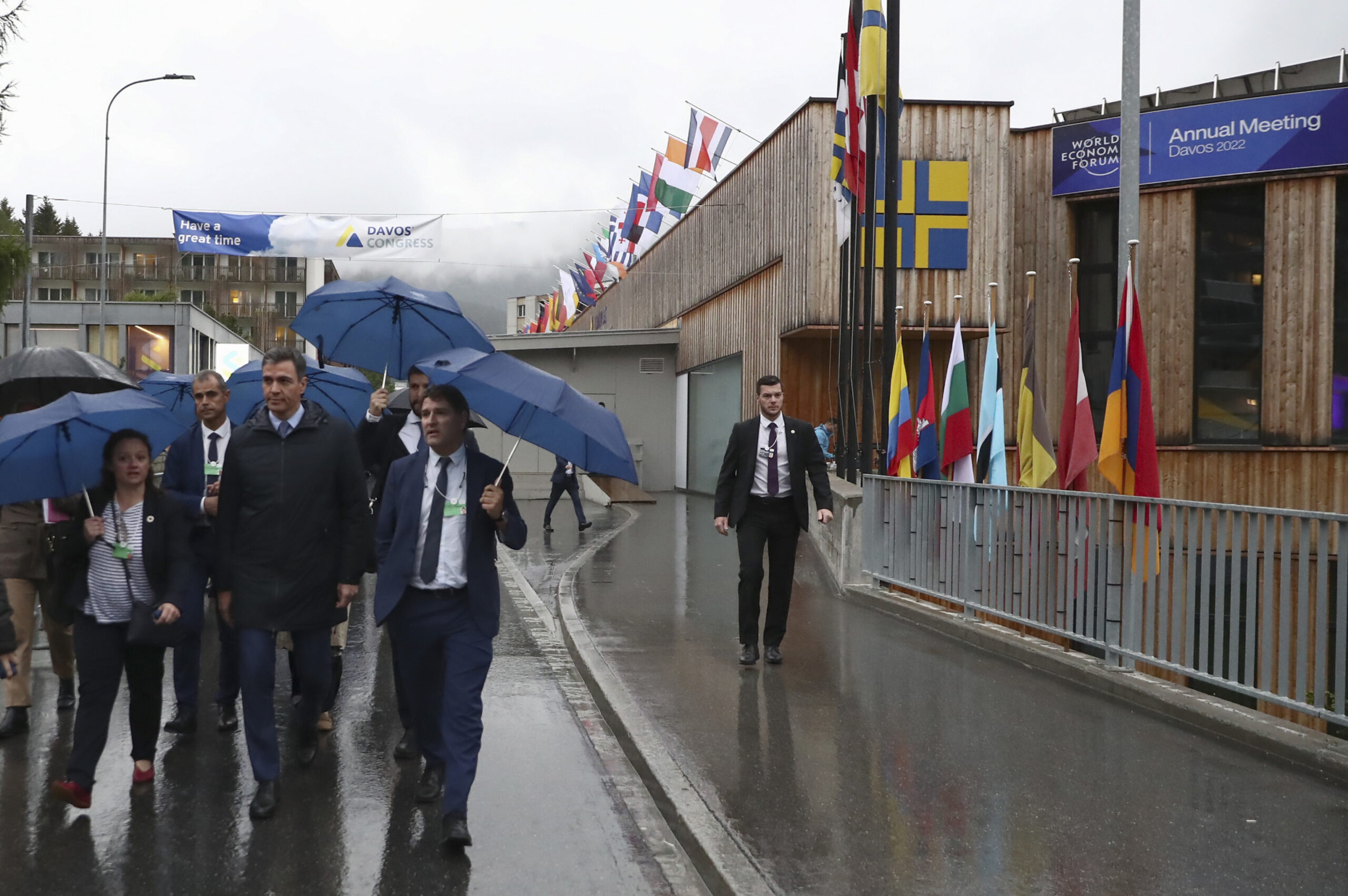The President of the Government, Pedro Sánchez, presents Spain in Davos as a future solution to the problem of the European Union’s dependence on Russia. “Spain and, I would say, southern Europe, will be able to provide an answer to this energy dependence on fossil energy from Russia,” Sánchez told the US network CNBC while attending the World Economic Forum in Davos.
The president claimed that the regasification industry in Spain represents 37% of the total capacity of the EU and almost half of the storage capacity of liquefied natural gas. Even more so, if it includes Portugal. The problem is that this capacity has not been exploited until now due to the French rejection and that of the Sánchez government itself to promote a new gas pipeline through the Pyrenees, the so-called Midcat, but the European Commission already considers it “crucial” to recover this project.
Sánchez points out that, although gas is still relevant, the future is renewable energies. “This war has also given us a very important lesson, and that is that renewable energies, hydrogen, energy efficiency are not only a great ally for countries and economies to face the efforts of climate change, but also In this complex and uncertain geopolitical scenario, they will also provide us with means to increase our resilience and autonomy,” he added.
Faced with repeated questions on CNBC about Spain’s ability to continue financing itself after the withdrawal of support from the European Central Bank to focus on inflation, Sánchez has asked for “confidence” in the Spanish economy. “The fundamentals are pretty solid and the year-over-year growth in the first quarter was 6.3%,” he said. He thus presented that between January and March there was an economic slowdown with a quarter-on-quarter growth of just 0.3%.
He also recalled that his official forecast is for growth of 4.3% this year and “the rise in employment is quite impressive” upon reaching the level of 20 million affiliates. “We are committed to fiscal consolidation [adjustment] and to increasing the competitiveness and productivity of the Spanish economy.” He has pointed out that “it is important” that the ECB’s policy “is aligned” with the European budget of more investment to transform the European economies after the pandemic hit.
The socialist leader has assured that he does not expect financing difficulties with the new ECB policy due to its restructuring of public accounts, its “commitment to an agenda of structural reforms” and European funds. “Our forecast is to lower the public deficit by 3% of GDP and the debt by 110% in 2025 [next legislature]”, he stressed that, in parallel, Spain is a beneficiary of European funds in which he has ensured that not only It has public money, but also private investment.
Conforms to The Trust Project criteria
















